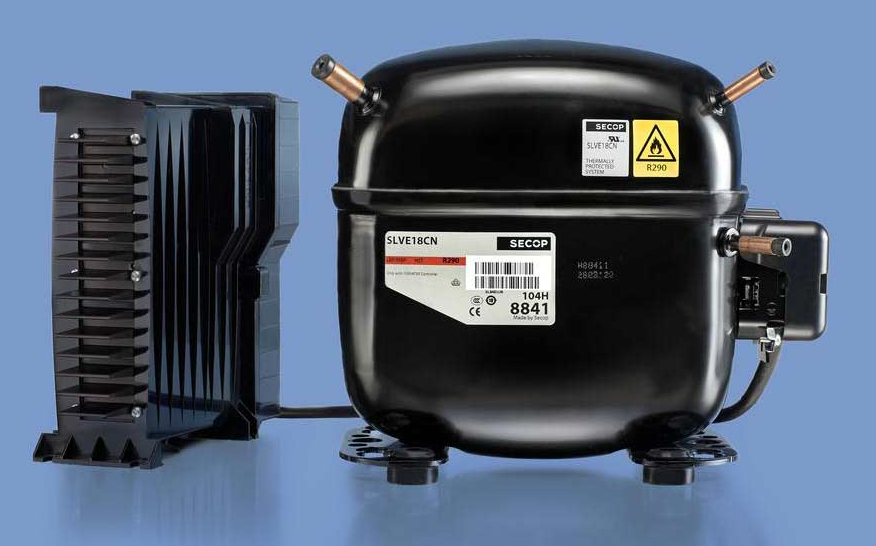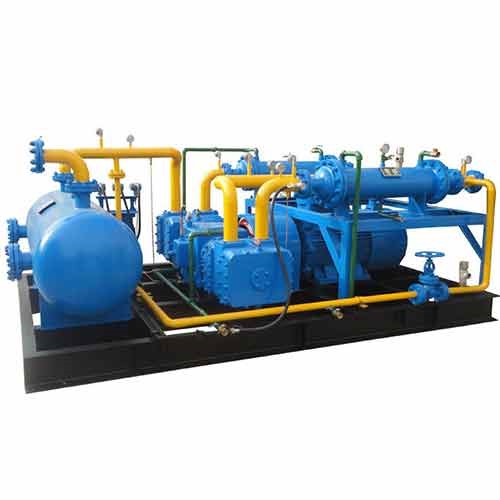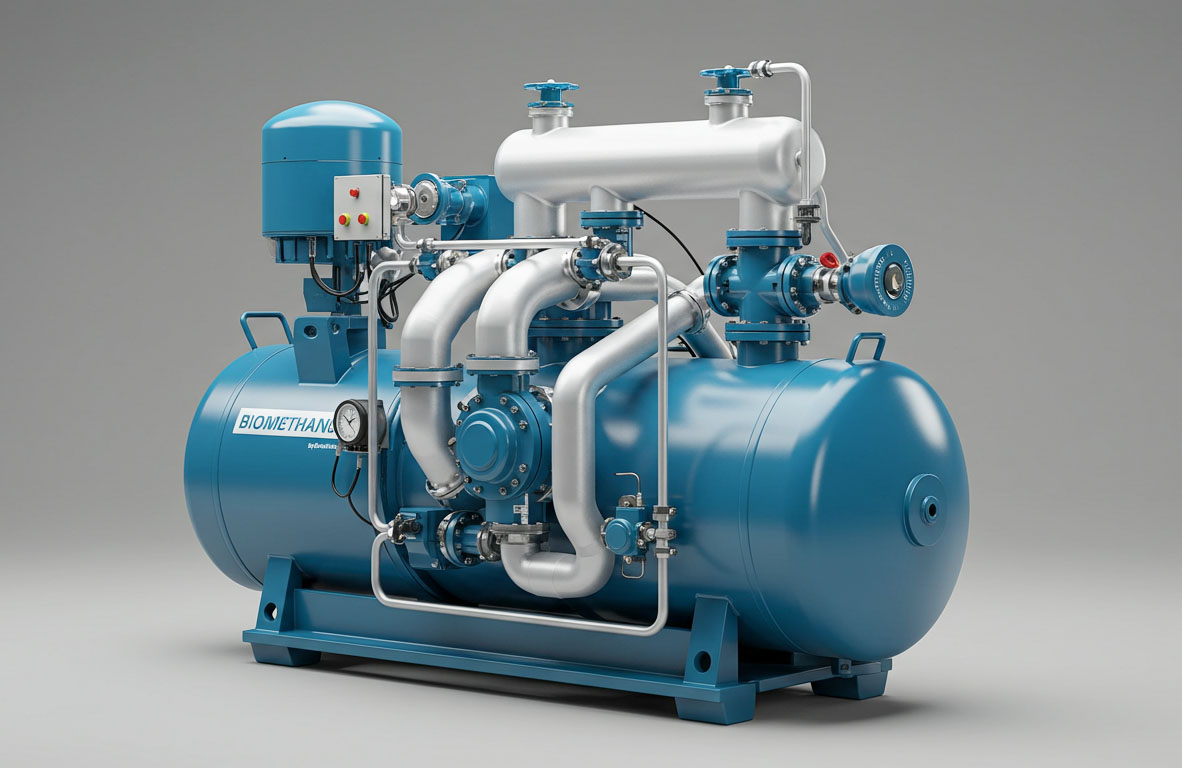Propane Compressor: Types, Applications, and Maintenance

Propane compressor, a versatile and widely used fuel, plays a vital role in various industries and applications. To ensure the efficient handling and distribution of propane gas, propane compressors are indispensable. In this comprehensive guide, we will delve into the world of propane compressors, exploring their types, applications, maintenance requirements, and safety measures. Whether you’re in the industrial sector, energy industry, or simply curious about propane technology, this article will provide valuable insights.
Introduction
A propane compressor is a mechanical device designed to increase the pressure of propane gas, making it suitable for various applications. It accomplishes this by reducing the gas volume, resulting in higher pressure and greater energy density. Propane compressors are essential for storing, transporting, and utilizing propane efficiently.
Propane, also known as liquefied petroleum gas (LPG), is a hydrocarbon gas commonly derived from natural gas processing and petroleum refining. Its versatility makes it a valuable resource across several industries, including residential, commercial, and industrial sectors. Propane is used for heating, cooking, transportation, and as an alternative energy source.
C. Role of Propane Compressors in Handling Propane Gas
Propane compressors serve as a critical link in the propane supply chain. They take low-pressure propane gas from storage tanks or pipelines and compress it to higher pressures, making it suitable for various applications. Without propane compressors, the widespread use of propane in different industries would be significantly hampered.
Types of Propane Compressors
Propane compressors come in various types, each with its working principle, advantages, and applications. Let’s explore the three main categories:
Reciprocating Propane Compressors
1. Working Principle
Reciprocating propane compressors operate using a piston and cylinder arrangement. As the piston moves back and forth, it compresses the propane gas within the cylinder, increasing its pressure. This compression process is cyclical and results in intermittent flow of compressed gas.
2. Advantages
- High compression ratios
- Suitable for high-pressure applications
- Good for intermittent usage
- Well-established technology
3. Applications
Reciprocating propane compressors are commonly used in industries requiring high-pressure propane, such as natural gas processing plants, petrochemical facilities, and propane cylinder filling stations.
Rotary Screw Propane Compressors
1. Working Principle
Rotary screw propane compressors utilize two interlocking helical screws to compress propane gas. As the screws rotate, they trap and compress the gas, gradually increasing its pressure. This method provides continuous and smoother gas flow.
2. Advantages
- Continuous and steady gas flow
- Energy-efficient
- Low maintenance requirements
- Suitable for medium-pressure applications
3. Applications
Rotary screw propane compressors find applications in propane vapor recovery systems, propane-powered vehicles, and smaller industrial processes requiring a constant supply of compressed propane.
Centrifugal Propane Compressors
1. Working Principle
Centrifugal propane compressors rely on a rotating impeller to accelerate the propane gas. This high-speed gas is then directed through diffusers, where its kinetic energy is converted into pressure energy. Centrifugal compressors are known for their ability to handle large volumes of gas efficiently.
2. Advantages
- High flow rates
- Suitable for large-scale applications
- Energy-efficient at high capacities
- Minimal vibration and noise
3. Applications
Centrifugal propane compressors are commonly used in industrial processes requiring large volumes of compressed propane, including propane refrigeration systems and natural gas liquefaction plants.
Applications of Propane Compressors
A. Industrial Uses
1. Propane Cylinder Filling
Propane compressors play a crucial role in filling propane cylinders of various sizes, from small portable tanks to larger ones used in forklifts and industrial machinery. The compressors ensure a consistent and safe filling process.
2. Propane Vapor Recovery
In industrial processes where propane is vaporized for use, such as in industrial ovens and furnaces, propane vapor recovery systems equipped with compressors capture and recompress the vaporized gas, reducing waste and improving efficiency.
3. Propane Refrigeration
Propane is gaining popularity as an environmentally friendly refrigerant. Propane compressors are used in propane-based refrigeration systems, providing efficient cooling for commercial and industrial applications.
B. Energy Sector
1. Propane as a Fuel Source
Propane is utilized as a clean-burning fuel for various applications, including heating, cooking, and electricity generation. Propane compressors ensure a reliable supply of compressed propane for these energy-related processes.
2. Propane Storage and Distribution
Large-scale propane storage facilities use compressors to maintain the gas at the required pressure. Additionally, compressors are essential for distributing propane to residential and commercial customers via pipelines.
3. Off-Grid Energy Generation
In off-grid areas where access to traditional energy sources is limited, propane is often used for power generation. Propane compressors facilitate the compression and storage of propane for use in generators and microgrid systems.
Factors to Consider When Choosing a Propane Compressor
When selecting a propane compressor for a specific application, several factors must be taken into account:
A. Capacity and Flow Rate Requirements
The required compression capacity and flow rate should match the application’s demands. Oversizing or undersizing a compressor can lead to inefficiencies and increased operational costs.
B. Energy Efficiency and Environmental Considerations
Opt for propane compressors designed with energy-efficient features to minimize operational costs and reduce carbon emissions. Additionally, consider environmental regulations and choose compressors that meet emission standards.
C. Safety Features
Propane is a flammable gas, so safety is paramount. Look for compressors equipped with safety features such as pressure relief valves, gas detection systems, and emergency shutdown mechanisms to ensure safe operation.
D. Maintenance and Serviceability
Regular maintenance is essential for the longevity and reliability of propane compressors. Select compressors that are easy to service, with readily available replacement parts and accessible maintenance points.
Maintenance and Care of Propane Compressors
A. Importance of Regular Maintenance
Regular maintenance is vital to ensure the efficient and safe operation of propane compressors. It helps prevent breakdowns, reduces downtime, and extends the compressor’s lifespan.
B. Recommended Maintenance Tasks and Schedules
Maintenance tasks may include cleaning filters, checking lubrication levels, inspecting valves, and testing safety systems. Develop a maintenance schedule and adhere to it to avoid unplanned downtime.
C. Tips for Ensuring Longevity and Optimal Performance
- Train personnel on proper compressor operation and safety procedures.
- Keep records of maintenance activities and equipment performance.
- Monitor performance indicators such as pressure, temperature, and vibration.
- Address any issues promptly to prevent major breakdowns.
VI. Propane Compressor Safety Measures
A. Safety Precautions for Handling Propane
- Ensure proper ventilation in areas where propane compressors are located.
- Use explosion-proof electrical equipment in hazardous areas.
- Implement strict safety protocols for handling and storing propane cylinders.
B. Ventilation and Gas Detection
Install effective ventilation systems to prevent the buildup of propane gas in confined spaces. Gas detection systems should be in place to alert personnel in case of gas leaks.
C. Emergency Procedures and Training
Provide comprehensive training to personnel on emergency procedures, including how to respond to gas leaks, fires, and compressor shutdowns. Regular drills and safety exercises are essential for preparedness.
VII. Future Trends in Propane Compressor Technology
As technology continues to advance, propane compressor technology is no exception. Here are some future trends to watch out for:
A. Advancements in Efficiency and Energy Savings
Ongoing research and development efforts aim to improve compressor efficiency and reduce energy consumption, contributing to cost savings and environmental sustainability.
B. Smart Monitoring Systems for Improved Performance
The integration of IoT (Internet of Things) technology allows for real-time monitoring of compressor performance. Predictive maintenance and remote diagnostics help identify issues before they lead to downtime.
C. Sustainable Practices in Propane Compression
With a growing focus on sustainability, propane compressor manufacturers are exploring greener alternatives, such as using renewable energy sources to power compressors and reducing the carbon footprint of the compression process.
VIII. Conclusion
In conclusion, propane compressors are essential components in the propane supply chain, enabling the efficient handling and distribution of propane gas in various industries and applications. Their role in propane cylinder filling, vapor recovery, refrigeration, and energy generation cannot be overstated.
As you consider propane compressor technology for your specific needs, remember to factor in capacity requirements, energy efficiency, safety features, and maintenance considerations. By embracing the latest advancements and adhering to safety protocols, you can harness the full potential of propane compressors while ensuring a safer and more sustainable future.
The significance of propane gas compressors in today’s industrial and energy landscape cannot be overstated. As we look ahead, expect further innovations that will continue to enhance the efficiency, reliability, and environmental sustainability of propane compression technology. Embrace these advancements and make propane compressors a cornerstone of your propane handling and distribution strategy.


